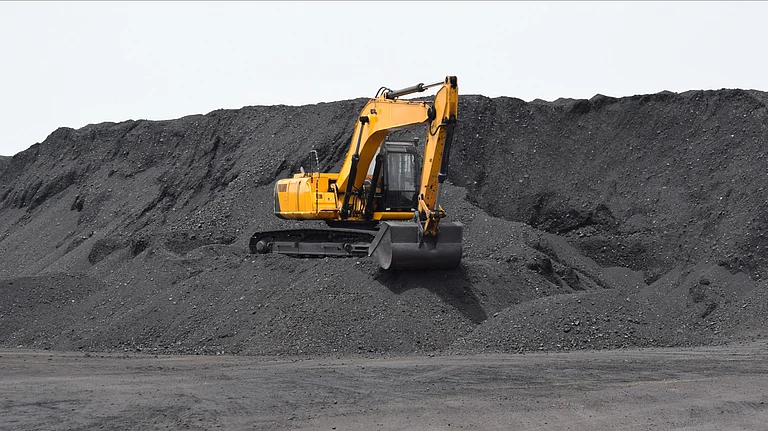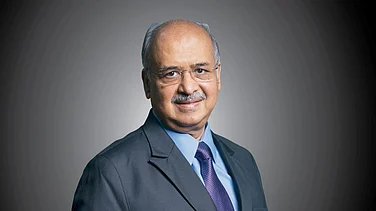
The power ministry plans to add 97 GW of coal and lignite-based capacity by 2034–35 to meet a projected requirement of 307 GW of thermal power.
Despite a renewable push (500 GW target by 2030), thermal power remains key.
Large-scale renewable and hydro development is underway, including 158.4 GW of renewable capacity and 13.5 GW of hydro under construction.
Power demand is rising due to economic growth, electrification, urbanisation, and increased EV usage.
The power ministry has planned to develop an additional 97 GW coal and lignite-based electricity generation capacity to achieve the required 307 GW of thermal installed capacity by 2034-35, Parliament was informed on Thursday.
This assumes significance in view of India's ambitious target of 500 GW of renewable energy capacity by 2030 and net zero target by 2070.
In a written reply to Lok Sabha, Minister of State for Power Shripad Yesso Naik said, "The projected thermal (coal and lignite) capacity requirement by the year 2034-35 is estimated at approximately 3,07,000 MW as against the 2,11,855 MW installed capacity as on March 31, 2023." The minister informed the House that to meet this requirement, the Ministry of Power has envisaged setting up an additional minimum of 97,000 MW of coal and lignite-based thermal capacity.
The installed electricity generation capacity in the country is 485 GW as on June 2025.
As per the National Electricity Plan (Generation) published in May 2023, India’s installed generation capacity is likely to increase to about 870 GW by 2031-32.
Thermal capacities of around 11,680 MW have already been commissioned since April 2023 till June 2025.
In addition, 38,935 MW (including 5,695 MW of stressed thermal power projects) of thermal capacity is currently under construction, the minister said.
Contracts for 15,440 MW thermal capacity have been awarded in FY 2024-25 and are due for construction.
To meet the projected demand in the country, 35,460 MW of coal and lignite-based candidate capacity has been identified, which is at various stages of planning in the country, it stated.
He also informed the House that 13,463.5 MW of Hydro Electric Projects are under construction.
Further, 9,802 MW of Hydro Electric Projects are under various stages of planning and targeted to be completed by 2031-32.
As much as 1,58,450 MW Renewable Capacity, including 74,150 MW of solar, 30,080 MW of wind and 53,750 MW hybrid power, is under construction while 62,000 MW of renewable capacity, including 46,010 MW of solar and 15,990 MW hybrid power, is at various stages of planning and targeted to be completed by 2029-30, he stated.
In energy storage systems, 8,250 MW/49,500 MWh Pumped Storage Projects (PSPs) are under construction, he stated.
A total of 5,780 MW/34,680 MWh capacity of PSPs are concurred and yet to be taken up for construction.
Of these, 3,500 MW/21,000 MWh capacity of PSPs are under bidding, and 15,829 MW/51,106 MWh Battery Energy Storage System (BESS) are currently under various stages of construction/ bidding, he also stated.
Nuclear capacity of 6,600 MW is under construction and targeted to be completed by 2029-30, the minister said, adding that about 7,000 MW of nuclear capacity is under various stages of planning and approval.
There has been an increase in electricity demand in the country due to several factors, like rapid economic growth, expanded household electrification, increasing urbanisation, rising living standards and the growing use of energy-intensive technologies, such as air conditioners and electric vehicles, the minister said.
As per the mid-term review of the 20th Electric Power Survey (EPS), the electricity demand due to Electric Vehicle (EV) charging is estimated to be 63,651 MU (about 2.35 per cent of projected total demand) by FY 2031-32.
Adequate generation capacity has been planned to meet the rising demand of electricity in the country, including due to the rise in EVs, he stated.
































